The rising popularity of pet crematoriums and cemeteries
- Published
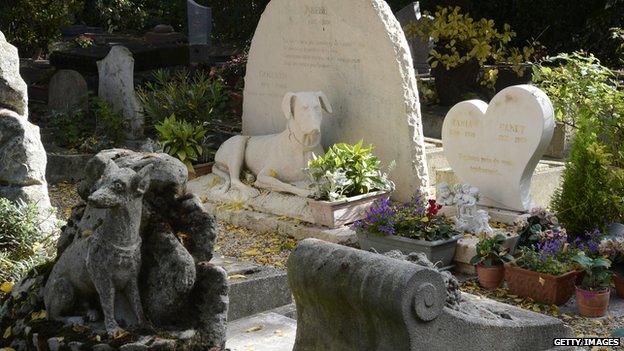
The pet loss industry is now big business around the world
When Penny Lally passes away she is going to be buried between her late husband... and her favourite horse.
The 71-year-old will join John Lally and her beloved old pony Super Sam in a picturesque woodland spot in Cornwall, south west England.
Also already buried in the family plot are Blot the cat, Muppet the Alsatian dog, and Brian the canary.
Elsewhere in the six acres (2.4 hectares) of woods and fields, some 40 other people are also laid to rest with their pets.
The land is owned by Ms Lally's business, Penwith Pet Crematorium, which is one of 50 or so pet crematoriums and cemeteries across the UK.
And businesses is booming, as an ever-growing number of pet owners wish to give their animals a more formal send-off.
At Penwith they now individually cremate an average of 200 animals per week, double the number a decade ago. Prices range from £42 for a hamster or guinea pig, up to £187 for a large dog.
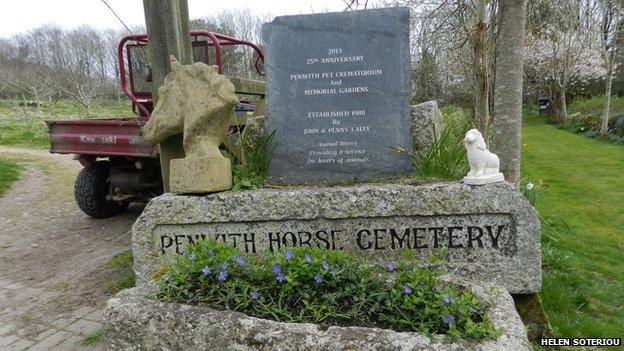
Penwith Pet Crematorium also has six acres of burial land
Meanwhile, it costs £900 to bury a horse (they are too big to be cremated at Penwith), or £1,500 for a human being.
Ms Lally says: "It was my silly idea to set up the business back in 1988."
She adds that she came up with the idea when she realised that there were many people like her and her husband who would like give their pets a formal cremation or burial. And that others would, like them, also consider being ultimately buried beside their pets, or where their beloved animals' ashes were scattered or interred.
"My husband and I were running a farm, and we were lucky enough to have the land to set up the business," says Ms Lally.
"So we set aside six acres. The business then gradually grew from there thanks to positive word of mouth and repeat business.
"Everyone who comes here goes away and happily recommends us to other people, and we get people who come back with their second and third pets."
'Pet parents'
Far from being just a British phenomenon, the industry of pet cremation and burial, or "pet loss" as it is known, is now a very big business globally.
According to US-based trade body Pet Loss Professionals Alliance (PLPA), the average annual turnover of its members around the world in 2013 was $860,464 (£556,000).
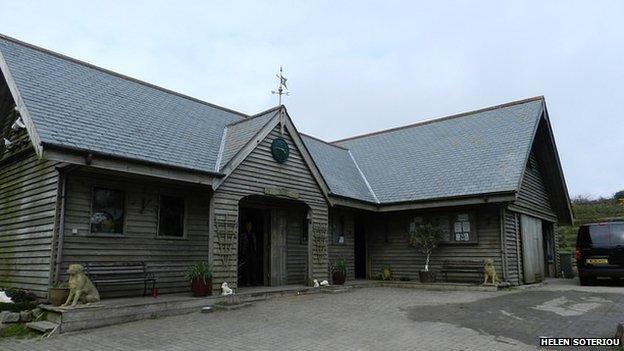
People take their pets to Penwith from far afield
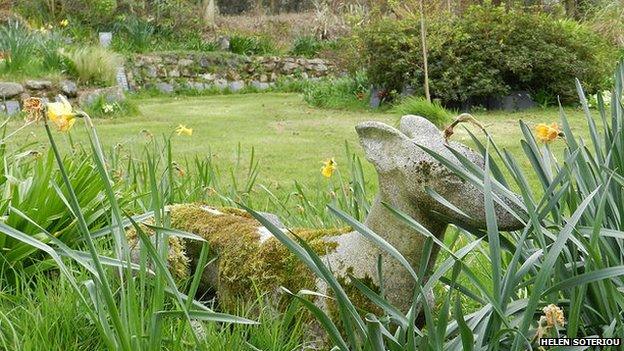
Penwith's customers can take their pets' ashes away, or have them buried or scattered there
And that year its members in the US alone cremated 1.46 million pets.
Coleen Ellis, co-chair of the PLPA, opened the first stand-alone pet funeral home in the US.
Today, she owns and runs an organisation called Two Hearts Pet Loss, which educates veterinary professionals and pet loss businesses about how best to meet the needs of people whose pets nearing the end of their lives.
Based in Indianapolis, Indiana, Ms Ellis, who is also the author of a book on the subject, says it is important to remember that there are two types people who have pets - "pet owners" and "pet parents".
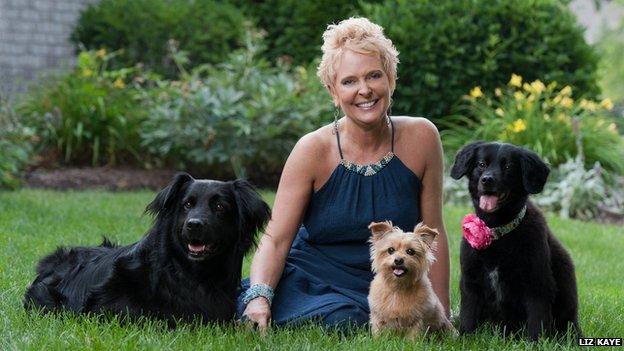
Coleen Ellis is an expert on helping people deal with the loss of a beloved pet
She adds: "My services are geared towards the pet parent, the person who saw their little furry animal as a member of the family.
"I wanted to give people 'permission' to do what they wanted to do to honour their pet, and to honour the life they shared together.
Readers remember their departed pets
"We are giving them permission to do more, and possibly in an area where they may be felt like they were going to be shamed, or made fun of, because a lot of people may be looking at them and saying 'it was just a dog', or 'it was just a cat, why do you want to do that, that's crazy?'."
'Final goodbyes'
Vivianne Dhupa and her husband Sarit Dhupa decided to go into the pet loss industry after a traumatic experience following the death of their then 17-year-old cat in 2004.
Their cat died on route to their vets in San Diego, California, and the couple did not want to take its ashes back from the surgery.
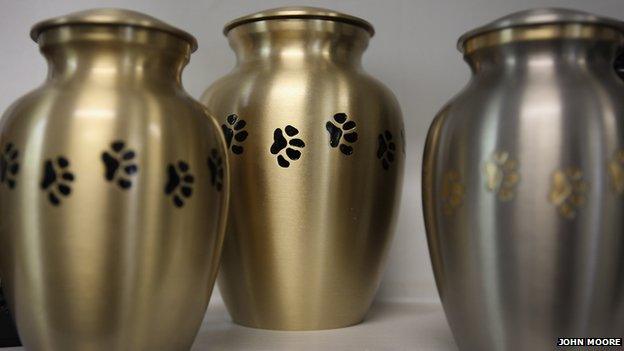
Specially designed pet urns are available to buy from pet crematoriums
A few months later Ms Dhupa went back to ask where the ashes had been scattered, only to be told that the cat had been taken to an animal rendering plant, because the couple hadn't specifically requested cremation.
"Needless to say, I was angry and devastated," says the 42-year-old.
To prevent other pet owners going through a similar experience, the couple set up their own pet crematorium - Peaceful Paws Pet Crematorium. This now cremates 20,000 pets per year, and customers can choose from a range of specially designed pet urns.
However, Ms Dhupa and her husband went one stage further, and also opened a hospice centre for dying pets, the Into The Sunset Pet Transition Centre.
Ms Dhupa says: "While our primary goal is to ensure our patients are pain-free and maintaining an acceptable quality of life, we focus a great deal on supporting the family emotionally.
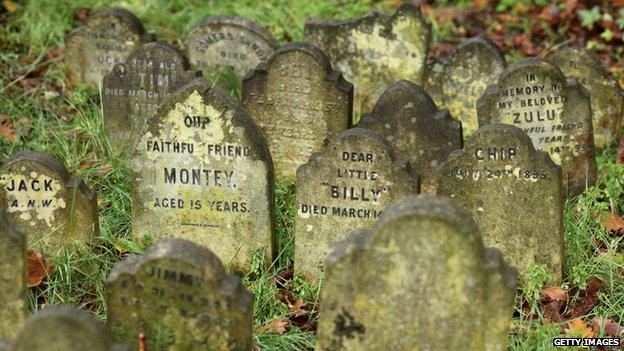
In late Victorian England a pet cemetery was open for a number of years in London's Hyde Park
"We do not prolong life or hasten death. Our primary goal is quality of life until the family is ready for their final goodbye."
Back in the UK, Carole Mundy, 61, has purchased burial plots at Penwith Pet Crematorium for her herself and her husband, and all of their cats and dogs. Plus three separate areas for her rescued horses. She says it has cost her thousands of pounds.
"I wanted to find a resting place where I can be buried with all of my animals," she says.
"They give me unconditional and devoted love, so why would I not want to be buried with them."